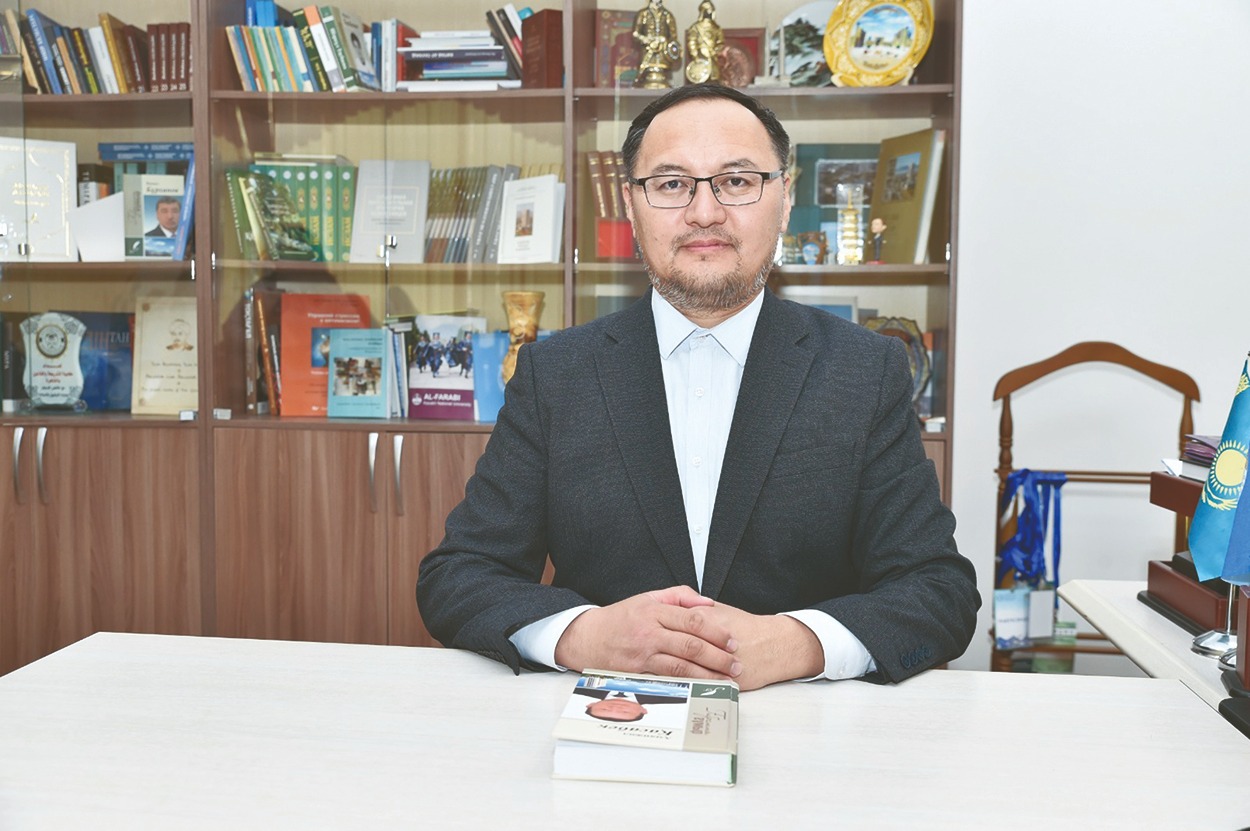There are many highly educated, few truly educated

-
In your opinion, what qualities should a "Best Teacher" at a higher educational institution possess? What requirements (pedagogical, psychological) should they meet?
-
Does the curriculum for your subject meet your expectations? What do you think can be done to improve it?
-
What are the strengths in training qualified specialists? Can you identify any?
-
Are you satisfied with the level of education of young people?
-
Do you agree with the viewpoint that "society is becoming more illiterate"?
Asset KURANBEK, Candidate of Philosophical Sciences, Head of the Department of Philosophy:
- The university’s “Best Teacher” should primarily be an educator, as they are the direct organizer of the educational process, a scholar, researcher, practitioner, innovator, and methodologist. The teacher should be able to fulfill all of these functions, and it is likely that many will reach the pinnacle of mastery in doing so. This is absolutely commendable. However, recently there has been a tendency to push pedagogical competence — that is, deep knowledge of the subject, the ability to work with young people, and the love and respect for students — into the background. Of course, quality education is the functional responsibility of all educators, but we are focusing on the most important aspect here. The aforementioned characteristics, along with positive student feedback and professional achievements, indicate the requirements that the best teacher of a higher educational institution should fulfill
- Overall, at a satisfactory level. However, there are also some shortcomings:
-
There are formalism tendencies in the educational-methodological complex (EMC), syllabus, etc. A question arises: “Has the quality of education improved as a result of refining and strictly controlling these documents?” This requires concrete empirical research.
-
There is a shortage of textbooks and educational materials in the Kazakh language, and the level of translation of original texts by world-class scholars into Kazakh is very low in our country.
-
Creativity, innovation, and critical thinking are not given enough attention, and rote learning prevails.
-
- Training qualified specialists is a very responsible task. We fully understand this. Therefore, to train professionals who meet the demands of today’s world, we rely on advanced methods and modern technologies. In this regard, our university is truly deserving of being called a leading educational institution. However, there remains a tendency in society to prioritize rote learning. Tests and assignments are seen not as a way to acquire knowledge but as a means of “earning points". The phenomenon of simulation, where students simply repeat information, continues. The emphasis on language acquisition (particularly English) is so high that it sometimes leads to the misconception that “being educated means knowing English” — a view that equates language proficiency with knowledge (while language learning is just a prerequisite). Such issues need to be addressed directly, because ensuring society is provided with skilled professionals is our primary responsibility. Therefore, accountability is necessary in every field.
- Compared to the past, young people today are more educated, but when compared to developed countries, they fall short. The level of education among young people is so disappointing that at times there are thoughts of introducing preparatory courses, or foundation courses, for all professions. Of course, there are talented students who excel in the first year, but overall, high school graduates can be described as “those who successfully guess the correct answers to test questions.” This is a global issue, and solving it is not the sole responsibility of higher education institutions. As mentioned earlier, the emphasis on language acquisition (especially English) is so overwhelming that some hold the belief that “being educated means mastering English". Young people focus more on superficial knowledge and experience, paying less attention to theoretical-methodological frameworks, classical education, and classical science. Due to the information available on digital networks, there are instances where students seek “TikTok knowledge” on certain issues. The requirements for PhD scholars are not high, and even when considered high, the standards and regulations are only assessed within the framework of meeting certain procedural requirements. There are objective reasons for this: the short duration of study, the lack of strict requirements from evaluators, financial difficulties, and other unresolved issues.
Of course, the number of educated individuals in our country is now higher compared to many developed nations. Society is well-informed through information networks.
On the other hand, the lack of striving for classical education in the world can also be attributed to the tendency to imitate and accept it as a model. It seems as though we are experiencing the “decadence” and “nihilism” phenomena from the 19th century. This is followed by carnivalization, mass culturalization, subculturalization, and other elements of postmodern culture. Thirdly, the stereotype from the Soviet era that “everyone is equal” was dominant, and it sought to eliminate the strict dichotomy between the educated and uneducated. This trend is still present today. As a result, the paradox “there are many educated people, but few truly knowledgeable individuals” has emerged.
Due to the lack of appreciation for the value of education and science in society, the concept of “adapting to life, not acquiring knowledge” has become the primary value. Education and science no longer serve as tools for survival. Now, only formal documents (diplomas, course completion certificates, etc.) are considered important, and their significance is steadily decreasing.
Gulzat NURMOLDAKYZY
